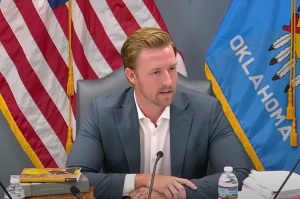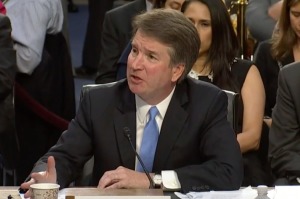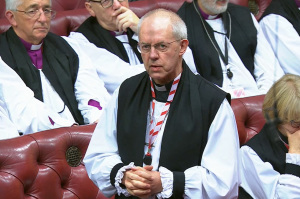Evangelical Immigration Table Calls for Path to Citizenship in Immigration Reform
The Evangelical Immigration Table, a coalition of evangelical groups that support immigration reform, called for a path to citizenship for current unauthorized immigrants.
"As evangelicals, we don't believe there are second class images of God, and therefore we don't believe in a second class status for people who are willing to follow and earned path for citizenship," the Rev. Jim Wallis, president and CEO of Sojourners, said on a press call announcing the statement.
The issue of whether current undocumented immigrants should be given a path to legal status or a path to citizenship, without having to return to their home country first, was recently raised by former Florida Governor Jeb Bush. In a new book on immigration, Bush suggested that current undocumented immigrants should only be allowed a path to legal status, though he later softened that stance after speaking to some Republican members of Congress working on the immigration issue.
The EIT statement suggests what they believe a path to citizenship should look like. Current undocumented immigrants would register, go through a background check, and pay a fine or do community service. After that, they would qualify for a provisional status in which they could earn legal permanent residency over a certain number of years "working, paying taxes, learning English, and demonstrating their good moral character."
Those who already applied for permanent legal residency would be processed first. "This will ensure that those applying now do not enjoy an advantage over those who have been trying to comply with immigration laws, while allowing all qualified applicants to earn status within a reasonable period."
Once one achieves permanent legal residency, the EIT states, they "should be allowed to work toward citizenship if they are willing to embrace all of the responsibilities of citizenship. This typically involves a three to five year waiting period, demonstrating good moral character, and meeting specific requirements for English language proficiency and U.S. civics knowledge, with appropriate exemptions for the elderly and for persons with disabilities."
Besides Wallis, other members of the EIT include Leith Anderson, president of the National Association of Evangelicals; Robert Gittelson, president and co-founder of Conservatives for Comprehensive Immigration Reform; Samuel Rodriguez, president of the National Hispanic Christian Leadership Conference and an adviser for The Christian Post; and Dr. Richard Land, president of the Southern Baptist Convention's Ethics and Religious Liberty Commission and executive editor for The Christian Post.
Some Republicans have expressed concerns that President Barack Obama does not really want immigration reform, but simply wants to use the debate over immigration reform to hurt Republicans in future elections. In conversations with Republican and Democratic members of Congress, Wallis said, they told him that "normally we would solve these things in a way that will help us win the next election, [but] we promise you we're not going to do that this time. We're going to work in a bipartisan way."





























